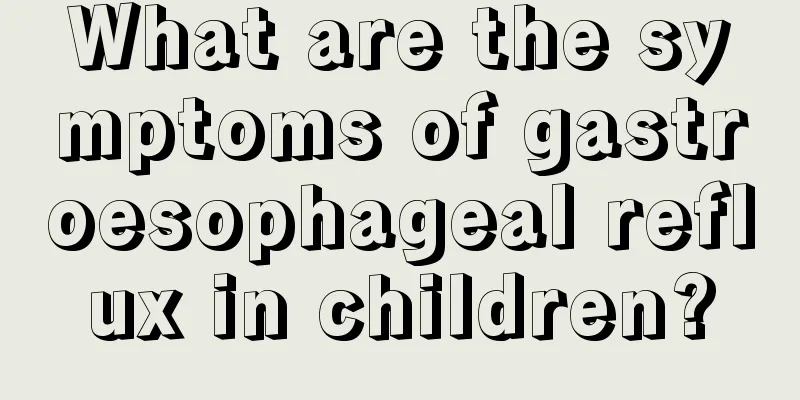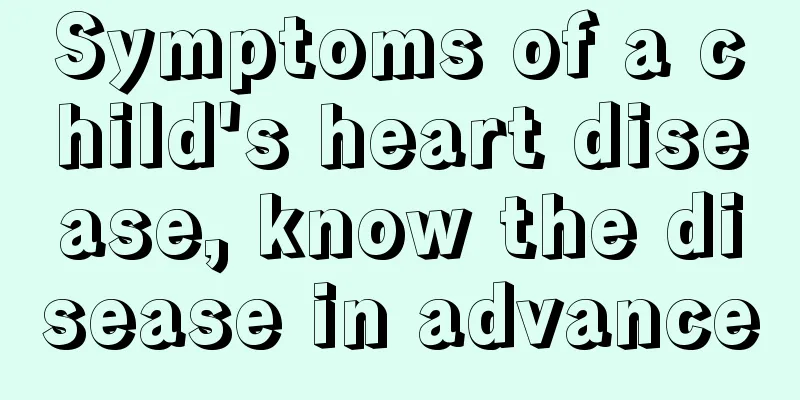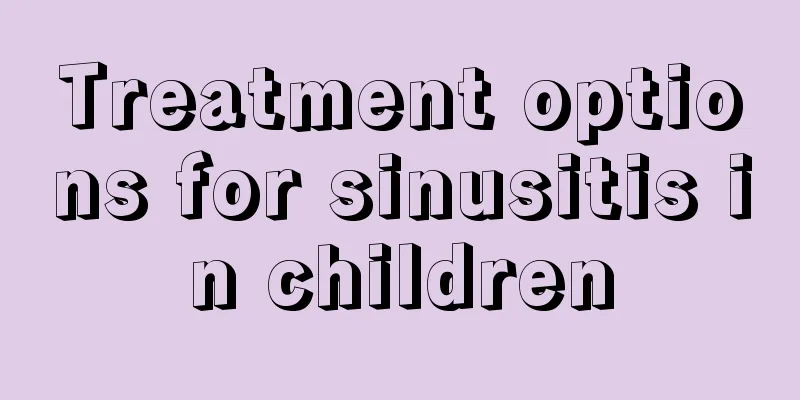What are the symptoms of gastroesophageal reflux in children?

|
Gastroesophageal reflux in children is a phenomenon that mothers are more worried and anxious about, because many mothers can easily find this problem in life, so naturally if it is not effectively solved, the harm caused to the child will be relatively large. The following will give you a detailed introduction to the symptoms of gastroesophageal reflux in children. 1. Symptoms caused by reflux itself are mainly vomiting, with vomiting after feeding being a typical symptom. About 85% of children vomit within the first week after birth, and 65% of children can recover on their own within six months to one year without clinical treatment. In fact, these children belong to the category of physiological reflux and do not require special clinical treatment. Only a small number of children experience repeated vomiting, which gradually worsens, leading to malnutrition and growth retardation. Older children may experience symptoms such as acid reflux and hiccups. 2. Symptoms caused by reflux irritation to the esophagus. Since the contents of the stomach or duodenum contain a large amount of attacking factors, they cause damage to the esophageal mucosa. Older children may experience symptoms such as heartburn, pain behind the sternum, and chest pain when swallowing. Those with severe esophageal lesions may experience reflux esophagitis and vomit blood or coffee-like substances. Such children are often anemic. Persistent symptoms of reflux esophagitis may further lead to complications such as esophageal stenosis and Barrett's esophagus. 3. Irritation symptoms outside the esophagus In recent years, the most attention has been paid to the causal relationship between gastroesophageal reflux and recurrent respiratory tract infections. About one-third of children have repeated respiratory tract infection symptoms such as choking, asthma, bronchitis and aspiration pneumonia due to inhalation of reflux. The asthma caused by reflux is not seasonal and often occurs at night. Recurrent aspiration pneumonia can lead to pulmonary fibrosis. In newborns, reflux can cause sudden suffocation or even death. A small number of cases may present with Sandifer syndrome, with a special "rooster-head-like" posture during an attack, accompanied by acid reflux, clubbing, low protein, and anemia. In some individual cases, patients may even visit the dental department due to oral ulcers and dental diseases, but the reflux symptoms are not obvious or are ignored. Esophagoscopy may lack signs of esophagitis. After anti-reflux treatment, oral ulcers may be alleviated or healed. Because many diseases will show some symptoms in the early stages, if we ignore them, we will not be able to take timely and targeted treatment and solutions, so sometimes it will cause more serious consequences. However, I hope that after the above introduction, parents will be able to correctly help their children prevent and solve the problem of gastroesophageal reflux. |
<<: Who should be vaccinated against chickenpox?
>>: Why does my child breathe heavily when sleeping?
Recommend
Symptoms of baby choking on trachea when drinking medicine
Babies' immunity is relatively weaker than th...
Tips for babies not sleeping at night
Many mothers are troubled by their babies not sle...
What to do if your child has indigestion
Food accumulation means that children consume too...
What to eat when a child has a fever
In the new 21st century, every family pays more a...
What to do if a child has heat rash
We all know that children are particularly prone ...
What to do if you have a high fever of 38 degrees
I believe everyone is familiar with symptoms such...
Can I turn on the air conditioner when my child has a fever?
With the improvement of living standards, air con...
Children's weight gain diet
The health of children is often the most importan...
What to do if your child lacks confidence
In daily life, there are many ways to show a lack...
Can children drink monk fruit water?
In traditional Chinese medicine, monk fruit is a ...
Children's vision astigmatism
It is nothing for adults to have astigmatism due ...
Can a four-month-old baby eat steamed buns?
Babies around four months old develop rapidly, ga...
What causes diarrhea in children?
Children at home are the apple of their parents’ ...
Treatment of muscular torticollis in children
Parents will find that their children have a symp...
What is the trick to keep your baby's stomach early?
Holding the baby's bowel movement refers to a...









